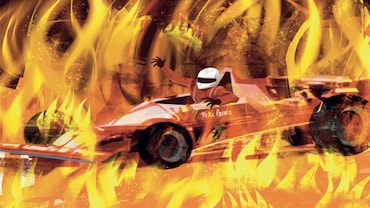Rohan's Chickpeas And What They Taught Me About Life's Grandeur
Finding magical transcendence and meaning in life’s smallest, humblest offerings
 Little had the author imagined that she would learn so much from chickpeas. (Image used for representative purposes only. Photo courtesy Flickr)
Little had the author imagined that she would learn so much from chickpeas. (Image used for representative purposes only. Photo courtesy Flickr)
Filing legal papers is a hassle in this country. I too was besieged by the paperwork and bureaucracy. Why me? I often thought. But, that day—6 June 2019—I woke up excited. I was meeting the writer Rohan Gogoi, on a visit to his hometown from Pune. He is an enigma, from what I gathered from our interactions on social media, his writings ever navigating the old and the surreal new. His readers say he is one of the few contemporary Assamese-speaking guys who perfected the art of Urdu poetry.
By evening, legal exhaustion and self-doubt was writ large on me. I was not able to make peace with how fragile relationships are. I yearned to get this mess over with. Rohan appeared to be a good reader of emotions. “When in doubt, eat chickpeas. Your worries will shrink to their size,” he greeted me, laughing while holding out a pack of chickpeas, his wide-open mouth making exaggerated chewing sounds. I was instantly drawn to the warmth. His flamboyant Urdu lines—iss taraf mera tajurba, us taraf teri mohabbat—had earlier led me to imagine him as quiet and sophisticated and flaunting a big city accent.
Those chickpeas were from the nearby roadside vendor, who has been selling conical packets at Rs 5 for about a decade now. His son helps with cutting and rolling the cones out from old newspapers. Often he garnishes the peas with random greens. How effortlessly he tosses those little things up in the air—you’ve got to see this pavement miracle to believe it.
With three packets of chickpeas, we headed to meet a mutual friend who lived nearby. The friend’s daughter had done well in her board exams. It was a special moment and Rohan wanted to be a part of it. They were hostel mates in the ’80s and became film buffs together.
“So you were packing chickpeas for your friend?” I asked. “And some chocolates for his little one”, he retorted.
Very soon, all of us were discussing a new film—Anupam Kaushik Borah’s Bornodi Bhotiai (In love, by the river). We were so moved by its simplicity, our conversation went on and on. There’s a line in this film that says, “Water that is exhausted flowing through the eyes, begins to flow through the nose instead.” Rohan related to this on a spiritual level. One character—the perpetually sneezing man—was very similar to Siddartha Kumar, the protagonist of Rohan’s own book Chasing Maya.
“I’m lucky I made it to the theatre in time. Back in Pune, I might not have had a chance”, he said.
“So are you a believer in chances?” I asked, confused about the bits of gloom and uncertainty in his writing.
“Indeed. Maya is much more than deceit, or illusion—it’s more about chance. I wish I had a story like Anupam’s. But, if life doesn’t grant you chances, you’ve got to grab them yourself, masroof zindagi. Transcendence is not about giving up on life—that’s a very cynical reading and many friends do it.”
“So, there can be a lot of exterior bling yet deep inside you might be elsewhere?”
“Why not,” he replied. “My gut always told me street chickpeas taste better than the supermarket ones. There’s a rustic freshness—less manufactured, more spontaneous—however randomly mixed.”
 (Left:) A rangoli with Rohan's name; (Right:) the late Rohan Gogoi
(Left:) A rangoli with Rohan's name; (Right:) the late Rohan Gogoi
***
Rohan (also Ruhaan) in Urdu means many things, including ‘vastness’. As friends of his, we now look up to the expansive sky and see traces of him up there. Most of the time, we read from his book of poetry and try to recite. Less than a month after we met, Rohan left us. Succumbing to a sudden cardiac arrest, he left a vacuum in our hearts. I cannot believe that my first meeting with him was to be the last. Is there a cure which can heal this restlessness? Or bring back his dear friends from the shells they’ve built for themselves, unable to cope with the intense grief. Why him?
On the sixth of every month, ever since Rohan’s gone, I try spending my evenings with the chickpea seller. He barely talks these days. He too has not really accepted that his greatest customer is no more. As he grimly works away, I can see that the wounds are still raw. As much as my heart wants to comfort him, I decide to not intervene. To hurriedly wish him a recovery may be further traumatizing.
I walk towards his friend’s home because my last memory of Rohan is imprinted there, forever. I feel a strange heaviness weighing me down near the gate, but I try to beat it. I am hopeful one day it will be better. I shouldn’t hurry this either.
Chota karke dekhiye zindagi ka vistaar, Rohan had said, shaking my hands, asking me to be patient and less worked up.
Maybe, truly, it is in the small things that life’s grandeur is revealed.






